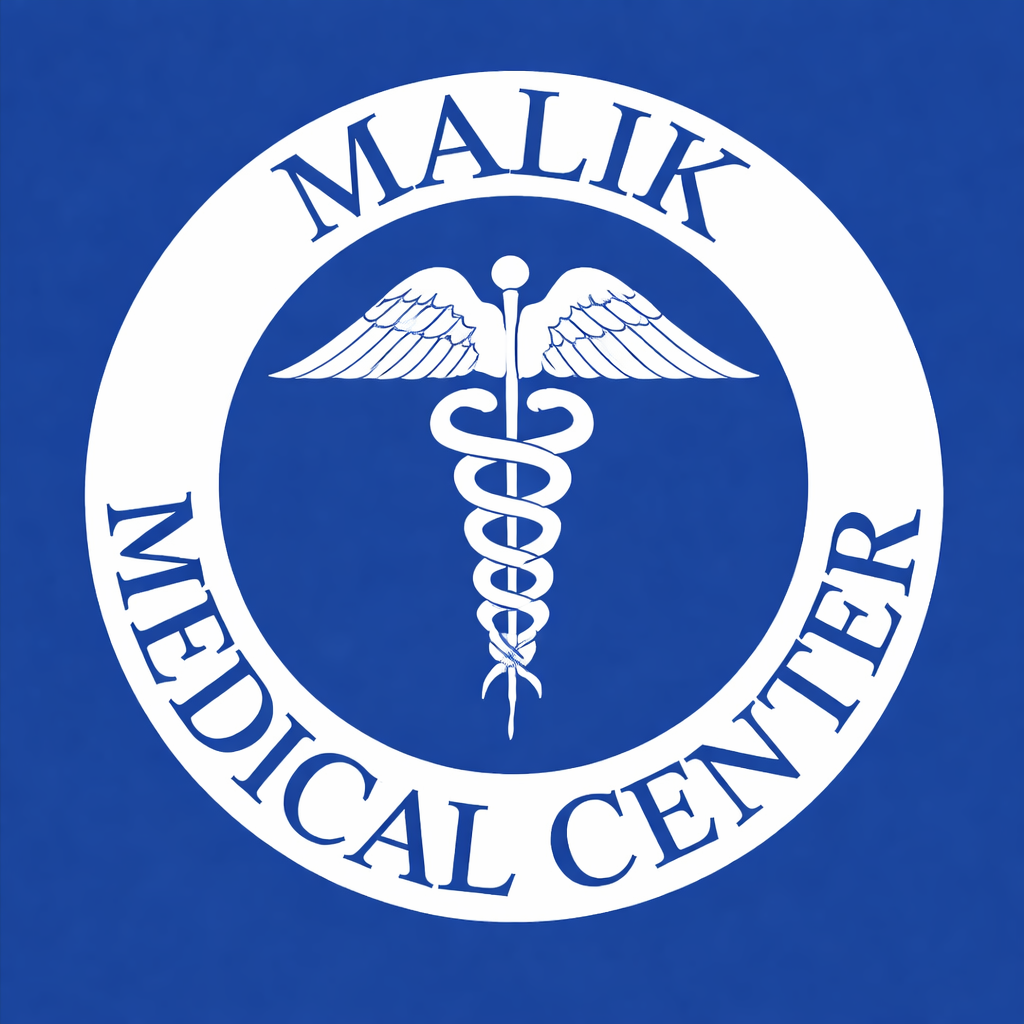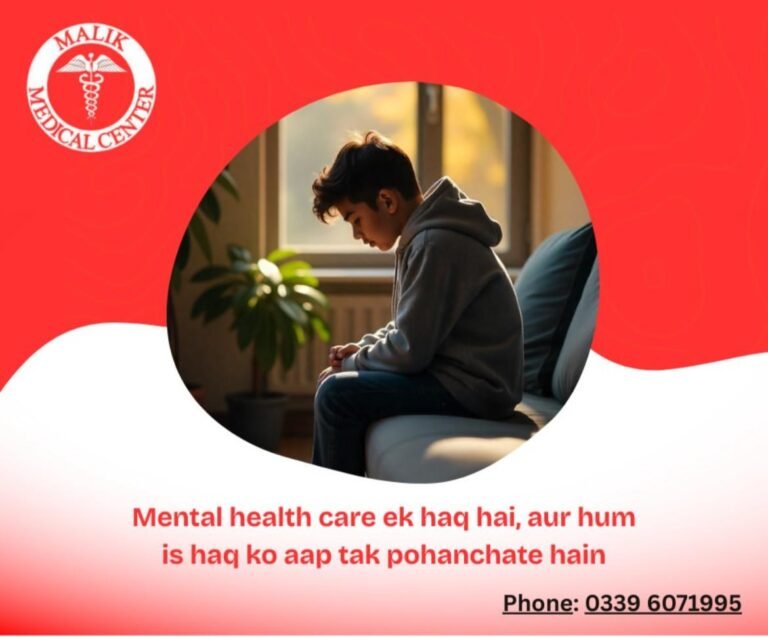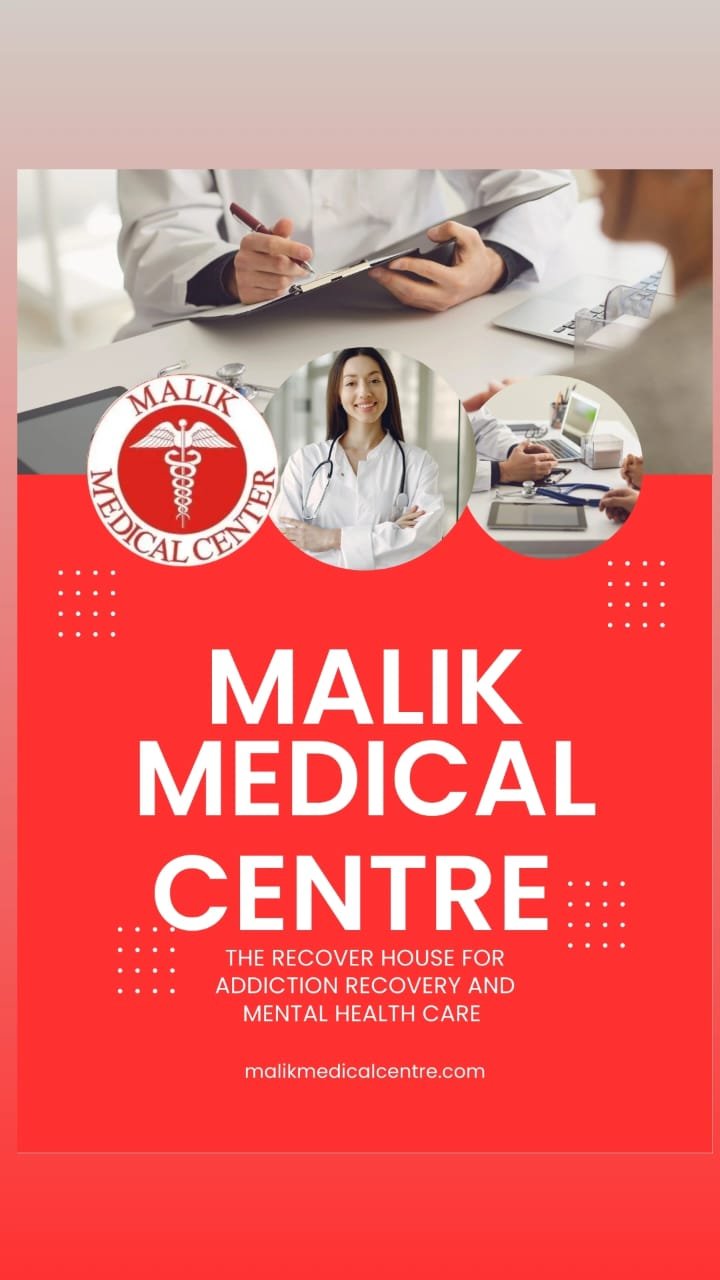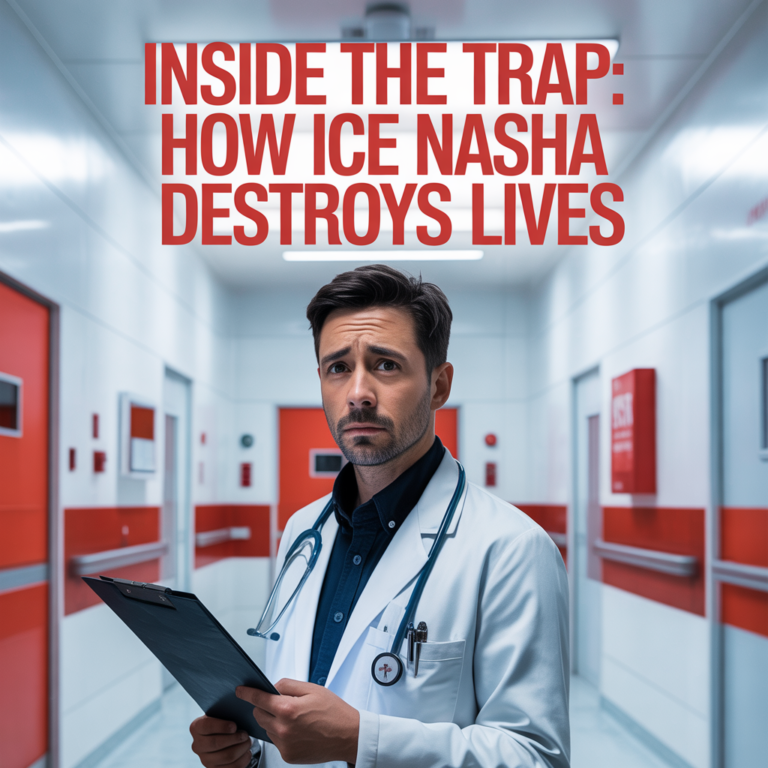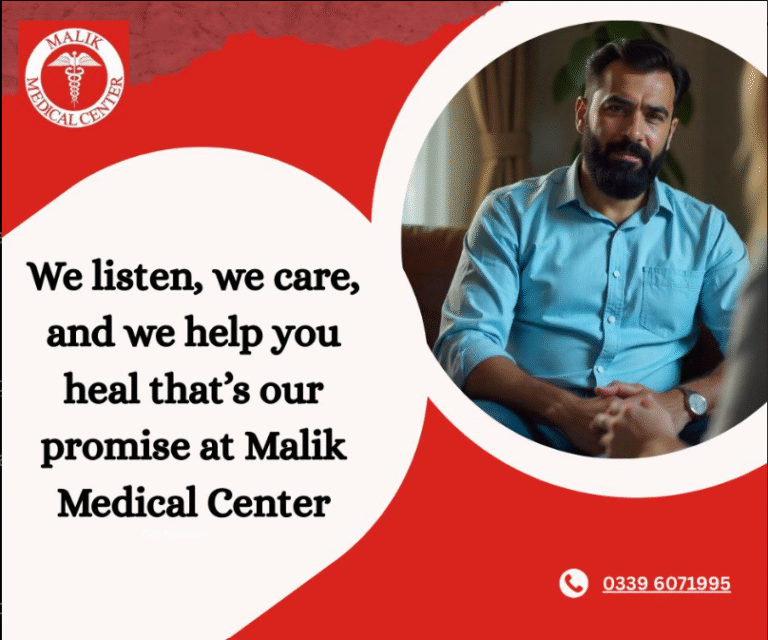Drug Abuse Treatment in Pakistan: Finding Recovery and Building a Better Future
Drug addiction is not just a selfish battle, it is an epidemic that has affected families, workplaces and even communities in Pakistan. Although a substance abuse issue seems to be too overwhelming in the context of its painfulness, the recovery is achievable with the assistance. Drug abuse treatment provides a healing process as people gain control over their lives, mend their relationships and reestablish hope. Having a professional care, the vicious circle of addiction can be interrupted, and a more wholesome future becomes possible.
Understanding Drug Abuse and Its Consequences
Drug abuse alters the functioning of the brain. Substances change over time thoughts, feelings and behavior. This can result in bad decision making, broken trust as well as dire health problems. Addiction is also detrimental to the community as it promotes crime and unemployment, as well as healthcare expenses. The later it goes, the more it will be damaged. This is the reason why early treatment of drug abuse is important in time- it stops further damage and helps the sufferers heal before the damage is more severe.
The Core Goals of Drug Abuse Treatment
Effective treatment focuses on three main goals:
- Restoring health by removing dependency on harmful substances.
- Rebuilding relationships to bring families back together.
- Reintegrating individuals into society as productive members.
When these goals align, treatment creates lasting change. It is not about short-term relief but about building a foundation for lifelong recovery.
Drug Abuse Treatment Methods in Pakistan
There is no single solution for everyone. Different individuals respond to different approaches. The most common treatment methods include:
- Detoxification Programs – Safely removing harmful substances from the body.
- Behavioral Therapy – Helping patients replace destructive habits with positive coping strategies.
- Medication-Assisted Treatment – Reducing cravings and stabilizing withdrawal symptoms.
- Support Groups – Encouraging long-term recovery through shared experiences.
These methods often work best when combined, offering a more holistic and supportive recovery journey.
Why Professional Help Is Essential
Individuals attempt to wean themselves out of drugs, yet a majority of them end up in a relapse. Professional treatment of drug abuse offers medical care, medical supervision, and responsibility. Well-trained professionals understand how to cope with the withdrawal and help patients overcome emotional challenges. It can make the recovery very shaky without the assistance of the experts, and it is likely to relapse.
Family Involvement in Recovery
It is not a matter of individual, addiction reaches families. Therefore, family involvement is crucial in the drug abuse treatment. Education of families on addiction, therefore, makes them know how to assist on the recovery and not promote the bad habits. The families can reconcile and rebuild trust and forge stronger bonds through counseling sessions. Once a home support has been offered, one is bound to succeed in the long term.
Psychological Support and Counseling.
Mental health problems normally contribute to drug abuse. People may be forced to use substances to ease their state due to depression, traumas, or stress. Counseling helps the patients to identify such underlying causes and address them face to face. The cognitive behavioral therapy (CBT) instructs the patients to challenge the negative modes of thinking and come up with methods of coping that are healthier. It is psychological support that boosts recovery and risks of relapse being low.
Drug Abuse Treatment and Relapse Prevention
The process of recovery is not over when the detox and initial therapy is complete. Relapse prevention is among the issues which matter most in drug abuse treatment. The patients learn to identify triggers, can avoid risky situations and develop resistance to cravings. Plans of relapse prevention usually incorporate:
- Early identification of warning signs.
- Engaging in stress management skills.
- Remaining in linkages with support groups.
- Advertising healthy lifestyle practices.
By doing this, people will be in a position to remain stable and keep on creating better futures.
The Role of Community in Healing
Societies are effective in helping recovery. Once neighborhoods offer awareness programs, safe havens and job opportunities, people who drop out of rehab facilities find a source of strength to remain on course. Community support breaches stigma and makes new people understand that they are not the only ones in the process of recovery. The drug abuse treatment is much better when the communities help to promote inclusion rather than Judging.
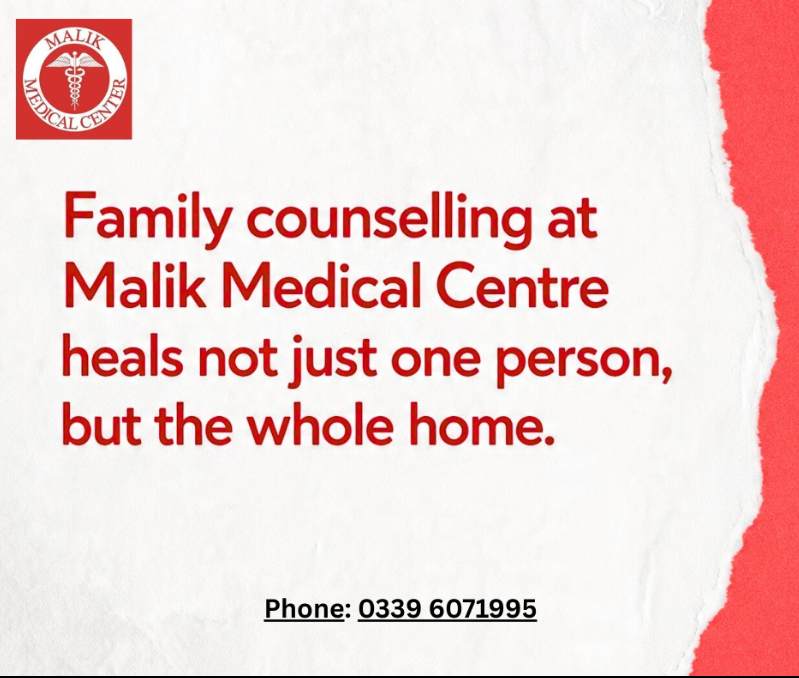
Choosing the Right Drug Abuse Treatment Center
The process of finding the right center may be daunting, but there are a number of considerations that are used to make the decision:
- Experienced and qualified professionals in the therapy of addiction.
- holistic programs that deal with physical and mental conditions.
- Family counseling materials of holistic recovery.
- Post-discharge support in terms of aftercare.
Right center is the key to making the painful addiction struggle into a promising recovery struggle.
The benefits of Lifestyle Change in Recovery.
Positive lifestyle change is most effective in combination with the drug abuse treatment. Exercise, nutrition, and mindfulness would aid in healing the body and mind. Hobbies and working on new aims also provide a person with motivation to go on in recovering. Every minor modification contributes to increasing the resilience and minimizing the possibility of returning to addiction.
The Link Between Trauma and Addiction
Substance abuse is frequently a root cause of trauma. Unresolved trauma leads people to harmful coping methods, regardless of whether it is as a result of childhood neglect, violence or life-altering events. These underlying wounds are to be treated through drug abuse treatment and not only the physical dependency. EMDR or CBT of trauma-centered therapies is used to assist patients in safely processing the painful experiences. The healing process of the underlying trauma results in the emotional strength of the patients, which is much more sustainable and meaningful in the long term.
Aftercare: The Key to Long-Term Recovery
The accomplishment of rehabilitation is just the job, and the whole process of recovery goes on long after being treated. Aftercare programs are the programs that give a blueprint and direction towards permanent sobriety. This can involve continuous counseling, peer support-groups and vocational training. Being connected to the resources, the individuals decrease the possibility of relapse and feel less isolated. Treatment of drug abuse incorporating aftercare makes sure that recovery process becomes a lifelong process of growth, stability and resilience and not a temporary one.
The Economic Impact of Addiction and Recovery
Addiction affects them financially and puts a lot of pressure on health and other legal systems. Nevertheless, there is much more to save in the long-run in terms of drug abuse treatment. Effective recovery will decrease crime, increase the productivity of the working places, and decrease the expenditure of health care. At individual level, treatment helps one to regain economic stability through resuming work. Using the concept of recovery as a social and economic investment, communities see the real worth of holistic treatment programs.
Drug Abuse Treatment Problems.
Recovery is never easy. Patients can experience social stigma, economic hardships or some internal resistance to change. Others are in a relapse before they establish long-term recovery. Nevertheless, one has to accept these difficulties as a process of healing. These obstacles can be defeated with set determination, positive family support and professional counseling.
Success Stories That Inspire
Millions of people in Pakistan have managed to overcome the drug abuse treatment and lead good lives. Their narratives are an indication that recovery is not only possible, but feasible. Some of them turn into supporters, enabling other people to achieve hope and strength. These stories of success make it clear that there is no one who cannot be helped, and no life is in vain.
The Future of Drug Abuse Treatment in Pakistan
Pakistan is progressing towards addressing drug addiction. There are new rehabilitation centers, awareness campaigns and community support programs that are being born. As there are additional resources and trained professionals, the quality of drug abuse treatment also improves. There is hope that a society in the future will be able to recover, reduce stigma, and even celebrate the process.
Conclusion: Building a Path Toward Hope
It can be said that drug addiction is a kind of a life-long prison that can be opened with the help of treatment. Through professional attention, family participation, and communities that support people, they can regain their lives. Drug abuse treatment is not simply an issue of quitting but rather one of reconstruction of dreams, regaining pride and building better futures. It is never too late to find a way back to normal no matter how dark the struggle was.
FAQs on Drug Abuse Treatment
What is drug abuse treatment?
Treatment of drug abuse is a combination of medical treatment and therapy as well as counseling to assist the patient to overcome drug dependence and live a healthier life.
What is the duration of treatment of drug abuse?
Treatment takes time, which depends on the patient, although the majority of the programs last few weeks to months, depending on the degree of addiction.
Will relapse occur following the treatment?
Relapse is possible, but through appropriate aftercare, support groups and additional counseling, it is possible to ensure that patients remain sober on a long-term basis.
What is the reason to select Malik Medical Centre to treat drug abuse?
It aims to provide evidence-based care under the leadership of Professor Malik Hussain Mubbashar whereby the care is delivered by an expert in a supportive, caring atmosphere.
Is family involvement in the process of drug abuse treatment?
Yes, family do take part in counseling sessions so as to enhance mutual understanding, support and establish a solid platform of recovery.
